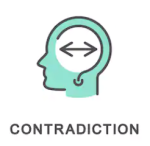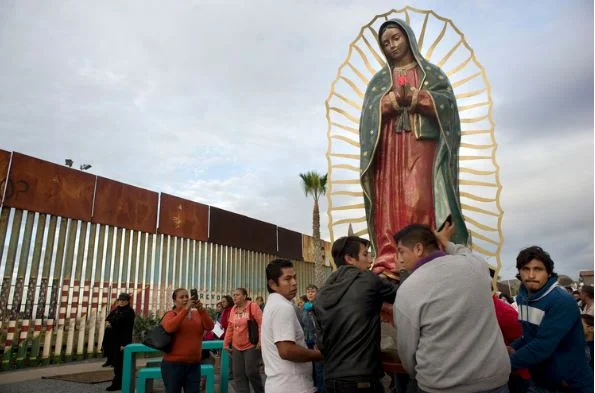Editor’s Note: This post first appeared on Biblical Trinitarian http://www.biblicaltrinitarian.com/2018/11/is-critical-race-theory-anti-christian.html and is presented here without alteration. With Critical Race Theory growing in popularity among putatively conservative Evangelicals, author Hiram R. Diaz III offers a much-needed refutation of this anti-christian idea.
Matthew Mullins, professor at Southeastern Baptist Theological Seminary, has a series of articles titled “Is Critical Race Theory [hereafter, CRT] ‘UnChristian,’” in which he seeks to demonstrate that CRT is not incompatible with the Christian faith. The articles form an apologetic defense of the recent utilization of CRT by professing evangelical leaders (e.g. Al Mohler, Thabiti Anyabwile, Russell Moore, and others) who are presently attempting to make “social justice” issues a primary concern for all Christians. This has been the cause of conflict between themselves and other evangelical leaders, as well as their congregants and other like-minded believers, who see such an emphasis on “social justice” issues as contradictory to the central role of the church in preaching and teaching the Scriptures (summarily expressed by the Law and the Gospel), and not engaging in social activism.
The upsurge in evangelical proponents of CRT has led a wide variety of non-CRT evangelical pastors, leaders, thinkers, and personalities to draft “The Statement on Social Justice & the Gospel,” wherein they explain their stance as regards the various “social justice” issues that have been raised by evangelical CRT proponents.[1] Their opposition to CRT is not only due to CRT proponent’s marginalization of the preaching of the Word of God, and their simultaneous privileging of “social justice” issues, but also due to the fact that CRT is derived from the presuppositions and concerns of postmodernist philosophers and social theorists. Opponents of CRT have rightly noted that the philosophical origins of CRT, from which CRT concerns and goals take root, are diametrically opposed to the main beliefs forming the foundation of the Christian worldview. In response, CRT proponents have sought to defend their synthesis of CRT categories, concepts, beliefs, and goals with the Christian faith.
However, the proponents of CRT have not given a biblical defense of the underlying philosophical beliefs which undergird it. This is either due to their unfamiliarity with those beliefs, their desire to avoid having to deal with the contradiction that arises between CRT’s philosophical foundations and the Christian worldview, or their inability to see how the Christian faith and CRT are diametrically opposed at the presuppositional level. This article, therefore, will follow Mullins’ definition of CRT, its core beliefs, and its proponents’ goals. It will then identify the philosophical origins of CRT and explain why it is not only un-Christian but foundationally anti-Christian and, therefore, to be denounced by the people of God.
§ II. Defining Critical Race Theory,
Its Core Beliefs, and Its Proponents’ Goals
Mullins begins his series by defining CRT. Mullins –
CRT is a complex system of beliefs that emerged in the United States in the 1970s and 1980s to call attention to and redress the subtler forms of racism that replaced the overt racism made largely unacceptable by the Civil Rights Movement of the 1950s and 1960s.[2]
These beliefs are identified in later articles to be the following –
1. “Race is social construct”[3] – This “means that race is a social reality rather than a biological reality. It does not mean that they think that everyone’s skin is the same color. It means that the characteristics we associate with those colors are imposed rather than inherent. Race is something we have invented to organize our world, rather than a product of our DNA. And for CRT, folks with lighter skin have organized the world based on values assigned to colors that privilege themselves and oppress people with darker skin.”[4]
2. “Racism is Structural”[5] – Mullins explains that for CRT proponents “racism is thus not only treating someone badly because their skin color is different from yours. Racism is a huge, complicated, historical system. It is the very way our world has been organized over time to empower folks who came to understand themselves as white and to subjugate those who fall outside that category.”[6]
3. “Colorblindness is a Problem, not a Solution”[7] – For CRT proponents, “the idea of treating people the same ‘regardless’ of their histories is why racism persists.”[8] CRT proponents argue that “if racism has evolved over time into an integral part of the structure of our society, and if that structure holds some people back and gives others a leg up, then to treat all those people the same is to maintain a status quo that disenfranchises some and privileges others.”[9]
4. “Interest Convergence, not Pure Progress”[10] – Mullins relays that “Interest convergence is the idea that dominant groups only acquiesce to minority interests when those interests converge with their own.”[11] In other words, CRT proponents believe that at times changes in society affecting racial groups are wrongly identified as “progress” when in reality they have only come about because they changes that are “in the best interest of the dominant culture, not because [they are] truly just, fair, or best for minorities.”[12]
5. “Whiteness is Normative”[13] – For CRT proponents, “whiteness has come to seem normal over time, making everything else non-normal, or other. To put it another way, whiteness and everything associated with being white has become the standard for how a person should be...CRT criticizes the idea that we can be neutral, objective, or colorblind when it comes to race. If we are trying to be neutral, then we are inevitably reinforcing the status quo, or the norm, and the norm is to live and behave like white people.”[14]
6. “Intersectionality”[15] – As Mullins states, “intersectionality is the study of how different identity categories overlap.”[16] Consequently, “proponents of CRT who study intersectionality typically believe that people living at the intersection of multiple oppressed identity categories face unique forms of discrimination that require equally unique forms of defense.”[17]
These core beliefs undergird the CRT proponent’s activities. CRT proponents see themselves are actively being committed to “expanding history,”[18] which is to say “telling a more complete story of United States history than many of us learned in school.”[19] They also “critique colorblindness,”[20] by “focus[ing] on revealing how stories, laws, customs, and decisions that seem to be neutral, or colorblind, are actually built on assumptions about race.”[21] Additionally, CRT proponents seek to “make the legal system fairer,”[22] “advocate for voting rights,”[23] and “change speech norms.”[24]
§ III. A Necessary Clarification
Having defined CRT, its core beliefs, and its proponents’ goals, we must make a necessary point of clarification. The proponents of CRT represent their stated goals as being in line with the second greatest commandment to love one’s neighbor as oneself, and because of this do not think their views should be called unChristian, let alone anti-Christian. This sidesteps the underlying issue – the fact that the philosophical underpinnings of CRT, from which perceived social ills spring and are identifiable as social ills, are anti-Christian. The disagreement between proponents of CRT and opponents of CRT is not one over whether or not Christians should love their neighbors as themselves. Rather, the disagreement is over the compatibility of CRT, as a post-structuralist-influenced/postmodern philosophical tool for social “change,” and the Christian worldview. The short answer is that they are not at all compatible, although they may share a superficial concern for rectifying some of the social ills we and our neighbors may experience. We will demonstrate this is the case below.
§ IV. The Origins of CRT
When we speak of the origins of CRT, we may be referring to the historical beginnings of the actual discipline or the philosophical foundations upon which CRT has been built. It is all too often the case that proponents of CRT will point to the historical beginnings of CRT when discussing its origins, presumably seeking to distance it from the halls of academia. Mullins does just this in his article explaining the “origins” of CRT, writing –
Critical Race Theory was not born out of a university department. It did not emerge from a political party, think tank, or policy center. It was a natural reaction to the aftermath of the Civil Rights Movement of the 1960s. While overt forms of racism such as discriminatory hiring practices and voter intimidation had been made illegal thanks to civil rights activists, new forms of racism emerged that required new forms of resistance and new forms of legal defense.[25]
By denying that it originated in a university department, and by stating that it was “anatural reaction to the aftermath of the Civil Rights Movement of the 1960s,” Mullins suggests that CRT is not tied to any particular philosophical worldview. It was a “natural [moral?] reaction” to historical circumstances, claims Mullins, but CRT scholars do not agree. For instance, Richard Delgado and Jean Stefancic state that –
As a scholarly movement, Critical Race Theory (CRT) began in the early 1970s with the early writing of Derrick Bell, an African-American civil rights lawyer and the first black to teach at Harvard Law School. Writing about interest convergence as a means of understanding Western racial historyl and the conflict of interest in civil rights litigation (the lawyer or litigation fund wants a breakthrough; the client or her group, better schools), Bell was one of a small but growing group of scholars and minority activists who realized that the gains of the heady civil rights era had stalled and, indeed, were being rolled back.[26]
Delgado and Stefancic are even more specific in their introductory work on the subject, writing –
The [CRT] movement is a collection of activists and scholars interested in studying and transforming the relationship among race, racism, and power. The movement considers many of the same issues that conventional civil rights and ethnic studies discourses take up, but places them in a broader perspective that includes economics, history, context, group- and self-interest, and even feelings and the unconscious. Unlike traditional civil rights, which embraces step-by-step progress, critical race theory questions the very foundations of the liberal order, including, equality theory, legal reasoning, Enlightenment rationalism, and neutral practices of constitutional law.[27]
Rather than placing the origin of CRT in a “natural reaction” or in some non-academic context, CRT scholars openly recognize that CRT was indeed birthed within the very context of academia.
Critical Legal Studies & Its Discontents:
Truth and Consciousness as the Possessor and Revealer of Truth
Thus, the origin of CRT lies directly in the work of legal scholars emerging from Critical Legal Studies (hereafter, CLS), a “wing of legal theory,” according to Raymond Wacks, that “generally spurns many of the enterprises that have long been assumed to be at the heart of jurisprudence.”[28] CLS embraces an anti-Enlightenment worldview which rejects many of the core assumptions of the Christian faith, as derived from the Scriptures. For instance, Wacks explains that “the primary purpose of critical legal theory...is to contest the universal rational foundation of law which, it maintains, clothes the law and legal system with a spurious legitimacy.”[29] Rather than viewing Law as originating in the mind of God,
...CLS detects in the law a form of ‘hegemonic consciousness’, a term borrowed from the writings of the Italian Marxist, Antonio Gramsci, who observed that social order is maintained by a system of beliefs which are accepted as ‘common sense’ and part of the natural order – even by those who are actually subordinated to it. In other words, these ideas are treated as eternal and necessary whereas they really reflect only the transitory, arbitrary interests of the dominant elite.[30]
Universal and absolute rules, consequently, were viewed as local and relative strictures imposed by those with power on their subordinates. As Duncan Kennedy explains –
Legal behavior and legal thought, with their prestige and claims to universality and rationality, have an important effect, the Gramscian-type argument would go, in maintaining the hegemony of ruling class people over this influential professional, technical, intellectual sector which administers the legal system. The legal system maintains the social structure of the capitalist state. It requires legal workers and has got to have some way of keeping their loyalty.[31]
Law is a human construct that serves human ends, in other words, and nothing more.
CLS, following Freudian psychoanalysis, also psychologized “legal thought,” identifying it as “a form of ‘denial’...[which] affords a way of coping with contradictions that are too painful for us to hold in our conscious mind...[by denying] the contradiction between the promise, on the one hand of, say, equality and freedom, and the reality of oppression and hierarchy, on the other.”[32] The underlying assumption of Freud’s concept of denial is, we must note, the belief that what is truly taking place in the unconscious mind of man is only perceivable by analysis of his patterns of speech and behavior. What is explicitly identified as the true content of a man’s mind, by the man himself, is to be understood as a socially approved of means of communicating socially disapproved of desires for animalistic “needs” (e.g. violence, sex, power).
CRT: The Fruit of Philosophy,
Not a “Natural Reaction” to Moral Evils
In contradiction to Mullins' claims regarding the origin of CRT, then, it is plain to see the anti-Enlightenment – and by implication anti-Christian[33] – philosophical roots of CRT without much effort.
§ IV. Why CRT is Anti-Christian
1. Reality, Language, and Law – The Christian Worldview
At this point, it should be evident to the reader that the worldview espoused by CLS, and which forms the foundation of CRT and social justice advocacy, is essentially opposed to the Christian faith. Metaphysically, i.e. as regards the fundamental nature of reality, the Scriptures show us that our creaturely reality was brought forth,[34] is now being sustained,[35] will be destroyed, and will be recreated by the Word of God.[36] As the psalmist declares –
By the Word of the Lord the heavens were made,and by the breath of his mouth all their hosts.[37]
Moreover, what God has decreed to come about will not fail to materialize,[38] for God “works all things according to the counsel of his will.”[39] All of creation obeys the Word of God, the command of God that these things should exist and do what he desires them to do. And if the entirety of creation and its existence is under the Law-Word of God, then so are the actions of all men.
Hence, when Paul declares that “all have sinned and fall short of the glory of God,”[40] he implicitly reinforces what he’s already stated explicitly to his hearers inRom 2:12-16: The same moral Law of God addresses all men. The Scriptures teach us that the work of the Law is written on the hearts of all humans,[41] irrespective of their national, ethnic, cultural, linguistic, or gender differences. The Law of God, therefore, does not see color, ethnicity, gender, socio-economic status, or even age – the Law of God sees guilt or innocence.
God’s rule by Law is evident, therefore, in the governance of the created order, but it is even more so evident in the universal knowledge of God as Creator, Law-Giver, and Judge. According to the apostle Paul, all men know God has created them to obey his Law, but they reject his law. According to the apostle Paul, all men know the difference between good and bad (i.e. righteous and unrighteous) behavior. All men will be judged on the basis of God’s revealed truth, be it merely general revelation or general and special revelation. Psalm 19 aptly articulates the triadic reign of God’s Law over the creation in general (vv.1–6), over all men in general (vv.7–10), and over particular men (vv.11-14). God teaches us that there is a inextricable link between reality, language, and law that reflects the life of our Creator, Redeemer, and Judge.
2. Power is God’s Possession to Distribute as He Sees Fit
The human establishment and exercise of civil laws by words is not a human contrivance, let alone a human practice which originated only a few hundred years ago (i.e. since the Enlightenment period). Man, as the image of God,[42] a prioriunderstands that there is an inextricable link between reality, language, and law. He further understands that law is a legitimate, divinely ordained means of exercising divinely bestowed power. This is hinted at in Gen 2:18-20, in which Adam reflects God’s act of naming creation in Gen 1 by naming various animals brought to him by God. Adam’s exercise of language assumes the inextricable link between reality, language, and law, and it assumes as legitimate the expression of power via legal language.
Adam received power from God, as all men do. For according to the Scriptures, “power belongs to God.”[43] As the prophet Samuel’s mother declares,
The Lord kills and brings to life; he brings down to Sheol and raises up. The Lord makes poor and makes rich; he brings low and he exalts. He raises up the poor from the dust; he lifts the needy from the ash heap to make them sit with princes and inherit a seat of honor. For the pillars of the earth are the Lord's, and on them he has set the world.[44]
And as the prophet Daniel tells us Nebuchadnezzar likewise proclaimed –
“Blessed be the name of God forever and ever, to whom belong wisdom and might. He changes times and seasons; he removes kings and sets up kings...”[45]
And as the Lord Jesus Christ also declares to Pontius Pilate –
“You would have no authority over me at all unless it had been given you from above...”[46]
Rather than identifying political structures of power as illegitimate mechanisms of oppression, the Scriptures identify them as divinely ordained institutions for the well-being of human society. In contradiction to CRT, Scripture teaches us that power does not originate with men individually or collectively. Power is the sole possession of God; he distributes it, on loan as it were, to whomever he wishes, as he sees fit.
The apostle Paul relays these truths unambiguously in his epistle to the Romans, writing –
...there is no authority except from God, and those that exist have been instituted by God. Therefore whoever resists the authorities resists what God has appointed, and those who resist will incur judgment. For rulers are not a terror to good conduct, but to bad. Would you have no fear of the one who is in authority? Then do what is good, and you will receive his approval, for he is God's servant for your good. But if you do wrong, be afraid, for he does not bear the sword in vain. For he is the servant of God, an avenger who carries out God's wrath on the wrongdoer. Therefore one must be in subjection, not only to avoid God's wrath but also for the sake of conscience. For the same reason you also pay taxes, for the authorities are ministers of God, attending to this very thing. Pay to all what is owed to them: taxes to whom taxes are owed, revenue to whom revenue is owed, respect to whom respect is owed, honor to whom honor is owed.[47]
While we recognize that there are historical events that lead to the formation of governing bodies, we also must recognize that it is God who has appointed these authorities to judge the actions of men and women impartially.
3. Impartiality is Not Impossible, if Properly Understood
From the above, we see that the Christian faith does not sever reality, language, and law from one another. We also see that God has given men the ability to rule by laws expressed in language. It is this judgment by the law of God that can properly be called impartial, seeing as its goal is to glorify God, not to attend to the needs, demands, and desires of any human individual or group. As it is written –
“You shall do no injustice in court. You shall not be partial to the poor or defer to the great, but in righteousness shall you judge your neighbor.”[48]
One can only show true impartiality by judging all men by the Law of God. CRT, and social justice advocacy, assume a concept of law that is purely socio-historical, non-divine in origin, and, therefore, identifies all laws as partial by virtue of their being expressed by different individuals and groups. Yet the Scriptures are clear – impartial judgment is judgment according to the Word of God.
4. Biblical Epistemology is Thoroughly Anti-Relativistic
We have already noted that CLS and CRT assume a form of ethical/moral relativism. What the reader should note here, however, is that ethical/moral propositions (e.g. “Income inequality is immoral”) constitute knowledge claims. Ethical/moral items of knowledge are viewed as relative to historically ensconced persons and groups, which implies that truth itself is relative. This is necessarily implied by their doctrine. However, we may further substantiate this assertion by reminding the reader that CRT, following CLS and the post-structuralist/postmodernist philosophers who influenced that school of jurisprudence, axiomatically denies all forms of essentialism. Consequently, CRT reduces categories of being and thought to heuristic tools to be used in the service of achieving whatever ends are in view by CRT proponents. The denial of all forms of essentialism renders all “knowledge” relative to historically ensconced persons and groups. Such a relativized understanding of knowledge, and therefore truth itself, stands in stark contradiction to the teaching of Scripture.
God’s Word teaches us that what it proclaims to be the case is actually the case. Scripture is replete with examples of this, but here we will offer two that are sufficient, seeing as they are universal in scope.
The sum of your word is truth, and every one of your righteous rules endures forever.[49]
Sanctify them in the truth; your word is truth.[50]
Given that the Scriptures are the Word of God communicated by various men throughout history, it follows that the truth is not relative to particular individuals or groups. CRT’s assumption that truths are relative to specific persons or groups is not only self-referentially absurd, therefore, but diametrically opposed to the teaching of Scripture regarding the nature of knowledge, truth, and, by implication, man.
5. Biblical Anthropology Militates Against CRT
We again must underscore CRT’s commitment to anti-Enlightenment concepts derived from the Christian worldview. As regards anthropology, what is renounced by CRT is the concept of subjectivity divorced from any particularities of history, ethnicity, language, gender, et al. Whereas the Scriptures teach us that every individual who ever has existed, is now existing, and will later exist is made in the image of God,[51] CRT undermines this by renouncing any concept of “abstract” subjectivity. The contradiction that obtains here is plain to see. Scripture teaches that all persons have an essential nature that makes them human; CRT denies all forms of essentialism, including anthropological essentialism.
6. The Incarnation and CRT are Mutually Exclusive
Christians affirm that the Eternal Son of God, Second Person of the Trinity, became “became flesh and dwelt among us.”[52] He was “made like [us] in every respect, so that he might become a merciful and faithful high priest in the service of God, to make propitiation for the sins of the people.”[53] This means that “when the fullness of time was come, [Christ took] upon him man's nature, with all the essential properties and common infirmities thereof, yet without sin.”[54] Thus, we affirm “that two whole, perfect, and distinct natures were inseparably joined together in one person, without conversion, composition, or confusion; which person is very God and very man, yet one Christ, the only mediator between God and man.”[55] God the Son truly became truly human, sharing every aspect of our human nature in its uncorrupted and sinless state. Hence, Scripture declares him to be “the last”[56] and “second Adam.”[57]
Christ, in other words, is truly God and truly man. The two natures are united in one divine person, implying that the knowledge of the incarnate Son did not differ in kind from the knowledge he possessed prior to his incarnation, nor does it differ now. Knowledge is not dependent upon history, nor is it dependent upon one’s socio-historical conditions; knowledge is God's possession. Neither Christ’s gender, nor his skin color, nor his language, nor his height, nor his hair length, nor his weight, nor his eye color made him possess knowledge he otherwise would not have possessed had he been born, for instance, a wealthy, white Scandinavian aristocrat. The knowledge Christ has as the God-Man is identical in substance to the knowledge he possessed prior to his incarnation. This is a necessary implication of the doctrine of the hypostatic union of the human and divine natures in the Second Person of the Trinity.
Given the doctrine of the hypostatic union, therefore, we must affirm that whatever divinely revealed knowledge we possess is substantially identical to that knowledge as it exists in the mind of God. The true propositions we possess are identical in substance to those which God possesses, and cannot be otherwise, since the Son of God as one divine person with two distinct natures knew, and knows, such propositions as both God and man. This is a reality that contradicts CRT’s relativistic epistemology in which persons and groups of persons have access to truths that are unknowable by other persons and groups of persons differing with respect to historical placement, skin color, language, weight, height, gender, socio-political status, and so on.
CRT and the doctrine of the incarnation cannot be held together simultaneously without contradiction, for CRT implies that there are “truths” that are inseparable from the human particularities mentioned above, but the incarnation shows us that there are no truths that are inseparable from the human particularities of an individual person or group's existence, seeing as the Lord Jesus Christ’s possession of universal and absolute truths was not dependent upon those human particularities mentioned above. Either CRT is correct, therefore, and Christ could not have known universal and absolute truths, or Christ did know universal and absolute truths, and CRT is false. These options are mutually exclusive.
§ V. Conclusion/s
Contemporary Christian proponents of CRT and social justice advocacy are either not being upfront about the academic and philosophical origins of CRT and social justice, or they are ignorant of their origins. If they are not being honest about this matter, Christians have every right to question the veracity of their claim that CRT is not unChristian. Likewise, if the proponents of CRT and social justice are ignorant as to the origins of CRT and social justice, Christians have every right to question the veracity of the claim that CRT is not unChristian. We are under obligation to test all things by the Word of God, accepting what is explicitly and/or implicitly taught therein; we are also obligated to reject what has no basis in the Scriptures.
What we do not have the liberty to do is accept the claims of CRT and social justice advocacy proponents as true without first scrutinizing them in the pure light of God’s holy Word. As is usually the case in church history, proponents of false teaching often claim to be taking the moral high ground by promulgating their false teaching. One need look no further than the so-called “Emerging church” movement just over a decade ago to see this tactic in action.[58] It is necessary for us, therefore, to know whether or not a new teaching or framework for understanding some Scriptural reality (in this case, i.e. that of racism, sins of partiality and violence) is fundamentally, essentially, at odds with the Christian faith. When we do, we will be able to properly differentiate legitimate moral concerns and commands from illegitimate moral concerns and commands.[59]
Having established that CRT is foundationally anti-Christian and, therefore, incompatible with Christianity, indeed contradictory to its main beliefs regarding the Son of God’s person and work, we may better understand why it is that CRT and social justice advocacy mistakenly identify acts of mercy as acts of justice. CRT and social justice advocacy rest upon a worldview that is contrary to the Scriptures at nearly every turn, thus their fruits are equally corrupt. The central issue in this matter, then, is not whether or not the church is to uphold justice, nor whether or not the church is to despise all forms of partiality and embrace persons of all socio-economic and ethnic backgrounds, nor whether or not the Scriptures command us to love our neighbors by showing them mercy and kindness. The central issue is this – Are the Scriptures sufficient, or not?
1 See, “The Statement on Social Justice & The Gospel,” https://statementonsocialjustice.com.
2 “Is Critical Race Theory ‘UnChristian’ Part 1,” Southeastern Baptist Theological Seminary,
http://kingdomdiversity.sebts.edu/index.php/2018/10/12/is-critical-race-theory-unchristian-part-1/, accessed October 18, 2018.
3 “Is Critical Race Theory ‘UnChristian’ Part 3,” Southeastern Baptist Theological Seminary, http://kingdomdiversity.sebts.edu/index.php/2018/10/03/is-critical-race-theory-unchristian-part-3/,accessed October 18, 2018.
4 ibid.
5 ibid.
6 ibid.
7 “Is Critical Race Theory ‘UnChristian’ Part 4,” Southeastern Baptist Theological Seminary,
http://kingdomdiversity.sebts.edu/index.php/2018/10/01/is-critical-race-theory-unchristian-part-4/, accessed October 18, 2018.
8 ibid.
9 ibid.
10 ibid.
11 ibid.
12 ibid.
13 ibid.
14 ibid.
15 “Is Critical Race Theory ‘UnChristian’ Part 5,” Southeastern Baptist Theological Seminary,
http://kingdomdiversity.sebts.edu/index.php/2017/10/26/is-critical-race-theory-unchristian-part-5/, accessed October 18, 2018.
16 ibid.
17 ibid.
18 ibid.
19 ibid.
20 ibid.
21 ibid.
22 ibid.
23 ibid.
24 ibid.
25 “Is Critical Race Theory ‘UnChristian’ Part 5,” Southeastern Baptist Theological Seminary,
http://kingdomdiversity.sebts.edu/index.php/2018/10/14/is-critical-race-theory-unchristian-part-2/. accessed October 18, 2018. (emphasis added)
26 “Critical Race Theory: Past, Present, and Future,” in Current Legal Problems 1998: Legal Theory at the End of the Millenium ed. Michael Freeman (Oxford: Oxford University Press, 1999), 467. (emphasis added)
27 Critical Race Theory: An Introduction (New York & London: New York University Press, 2001), 2-3. (emphasis added)
28 Philosophy of Law: A Very Short Introduction (Oxford: Oxford University Press, 2006), 92.
29 ibid. (emphasis added)
30 ibid., 95.
31 “Antonio Gramsci and the Legal System,” in ALSA Forum Vol. VI. No. 1 (1982), 36.
32 Wacks, Philosophy of Law, 95.
33 While Christianity does not embrace the Enlightenment ideals of human ethical, epistemological, and social autonomy, it does agree with the Enlightenment’s concepts of rational universality, ontological essentialism, and epistemological foundationalism.
34 cf. Gen 1:1, Ps 33:6, John 1:1-3, 2nd Pet 3:5, Heb 1:1-2 & 11:3.
35 cf. Heb 1:3.
36 cf. 2nd Pet 3:5-7.
37 Ps 33:6.
38 cf. Ps 33:9.
39 Eph 1:11.
40 cf. Rom 3:23.
41 cf. Rom 1:18-19 & 32; 2:14-15.
42 cf. Gen 1:26-27 & 9:6; Luke 20:23-25; 1st Cor 11:7; James 3:9.
43 Ps 62:11
44 1st Sam 2:6-8. (emphasis added)
45 Dan 2:20-21. (emphasis added)
46 John 19:11a. (emphasis added)
47 Rom 13:1b-7. (emphasis added)
48 Lev 19:15.
49 Ps 119:160. (emphasis added)
50 John 17:17. (emphasis added)
51 cf. Gen 1:26-27.
52 John 1:14a.
53 Heb 2:17.
54 1689 London Baptist Confession of Faith, Ch. 8, Art. 2. (emphasis added)
55 ibid. (emphasis added)
56 1st Cor 15:45.
57 1st Cor 15:47.
58 See Diaz, Hiram R. “Heretics that are Holier Than You,” Christian Apologetics and Research Ministry Official Blog,
https://web.archive.org/web/20121103061646/http://blog.carm.org/2011/06/heretics-that-are-holier-than-you/.
59 There are several contemporary authors who have provided very useful resources in this regard. See Beisner, Calvin E. Social Justice vs. Biblical Justice: How Good Intentions Undermine Justice and the Gospel (Good Trees Press: 2018), 46pp; Clark, R. Scott. “Resources on the Social Gospel and Social Justice,” The Heidelblog, https://heidelblog.net/2018/04/resources-on-the-social-gospel-social-justice/; Harrison, Darrell B. “The Fault in Their (Social) Gospel,” Just Thinking...For Myself,
https://justthinking.me/2018/08/31/the-fault-in-their-social-gospel/, and “The Misleading Language of the Social Justice Movement,” https://justthinking.me/2018/05/13/the-misleading-language-of-the-social-justice-movement/; Buice, Josh. “The Broken Road of the Social Gopel,” Delivered by Grace,
http://www.deliveredbygrace.com/the-broken-road-of-the-social-gospel/; Sey, Samuel. “Social Justice is a Threat to Human Rights and the Gospel,” Statement on Social Justice and the Gospel, https://statementonsocialjustice.com/articles/social-justice-threat-human-rights/; Hall, Amy K. “If We Lose the Meaning of ‘Justice,’ We Lose the Gospel,” Stand to Reason, https://www.str.org/blog/if-we-lose-meaning-justice-we-lose-gospel.







![The Genetic Fallacy: Critical Race Theory’s Indispensable Tool [Pt. 2]](https://images.squarespace-cdn.com/content/v1/5a5bff8ed7bdcefb1f740198/1564560831774-ON66W9MHLDAZXZHI4KOR/pharisees.jpg)


![The Genetic Fallacy: Critical Race Theory’s Indispensable Tool [Pt. 1]](https://images.squarespace-cdn.com/content/v1/5a5bff8ed7bdcefb1f740198/1562388211555-IUVTROMYSAJVCRKWGON6/critical+race+guys.jpg)










